How blessed indeed is the family of a young woman who hears the Lord calling her to become His bride and responds with her whole heart!
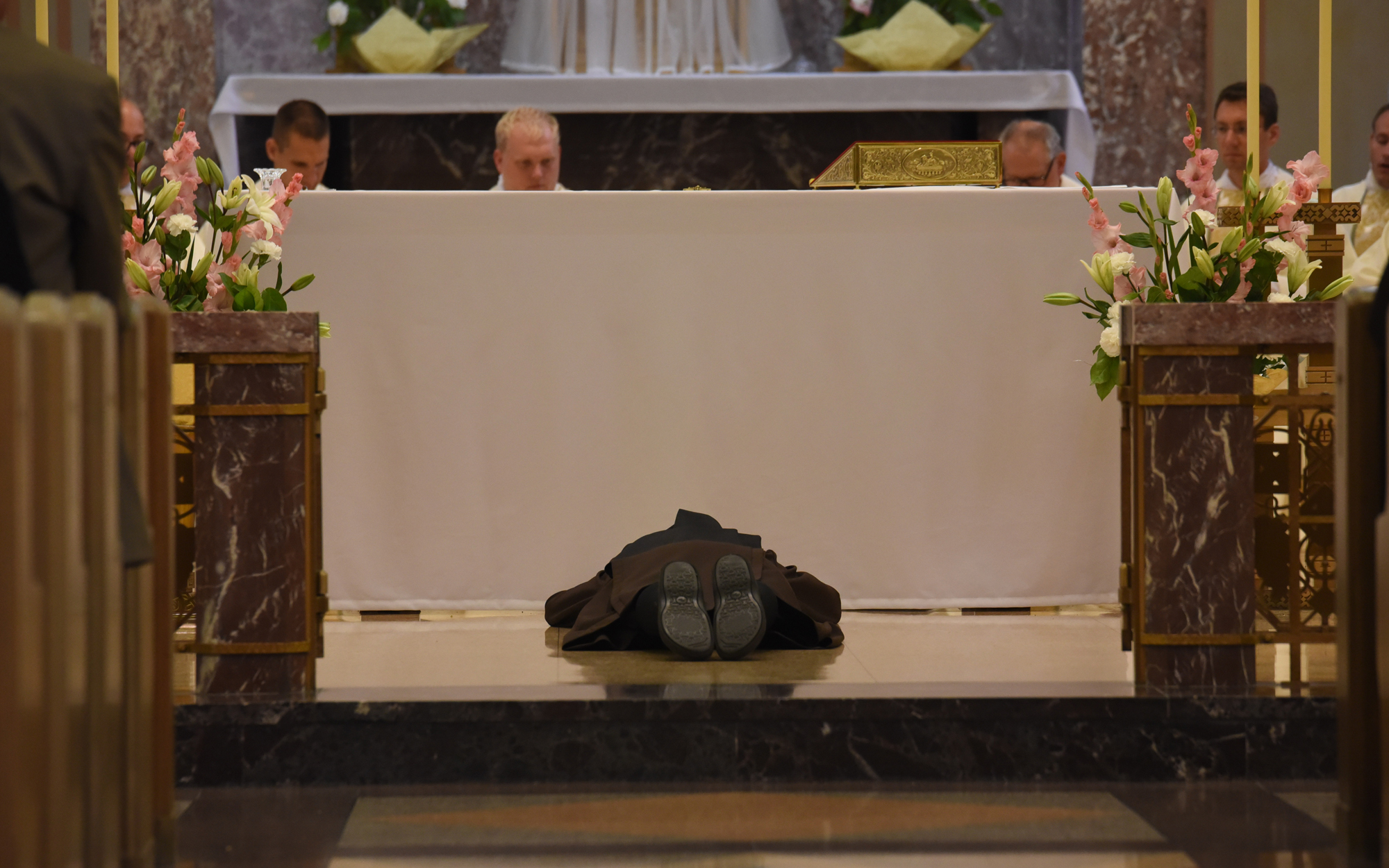
What does this mean for her and for us, her family?
From all eternity God knew that one day He would call your daughter to become His, and His alone. He planted the seed of her vocation in the soil of love and nurturing provided by you – her first teachers of the faith. God chose you to raise her in such a way that she would hear His Voice, understand His call, and be able to answer Him by living it to the full.
Our community not only embraces your daughter, but also her loved ones to whom we owe a wealth of gratitude and respect. We show our esteem for you, her family, through our commitment to praying for you during our hours of Eucharistic adoration. We also have special Masses offered throughout the year for your intentions.
When your daughter enters our community, you will not have lost her, but you will have gained many more daughters, because you now belong to our Franciscan family. Together with your daughter, we share in her love and concern for you, and join in prayer for your needs and intentions.
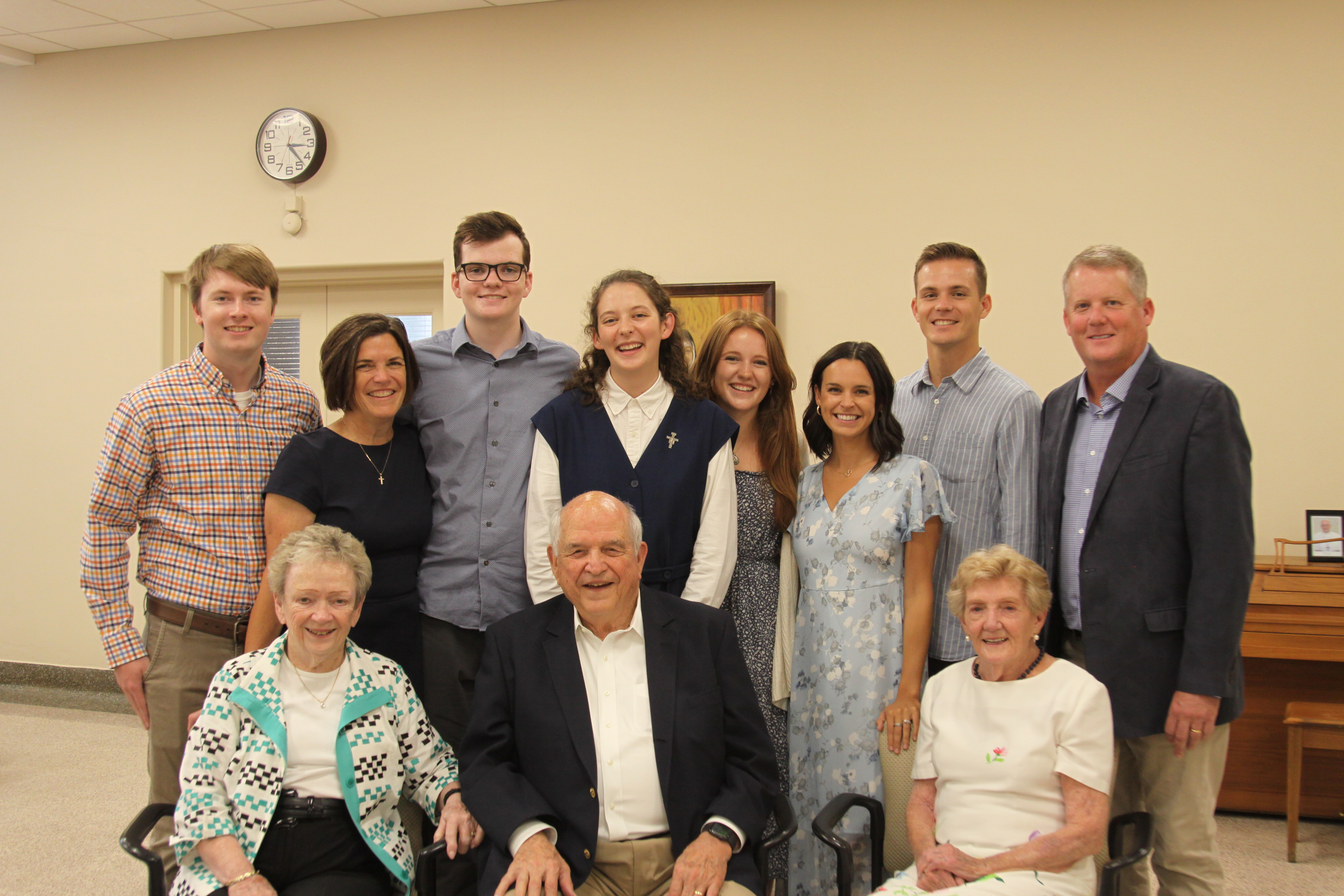
How will my daughter live as a member of your community?
A vocation to our community is a call to follow the Gospel of our Lord Jesus Christ after the example of St. Francis of Assisi and Mother Maria Theresia Bonzel, the foundress of our Congregation. Our religious life expresses itself in prayer, particularly Perpetual Adoration, in loyalty to the Church, in simplicity and humility. We vow to live in obedience, poverty, and chastity, and express our love for God and His Church in sisterly community and in serving others.
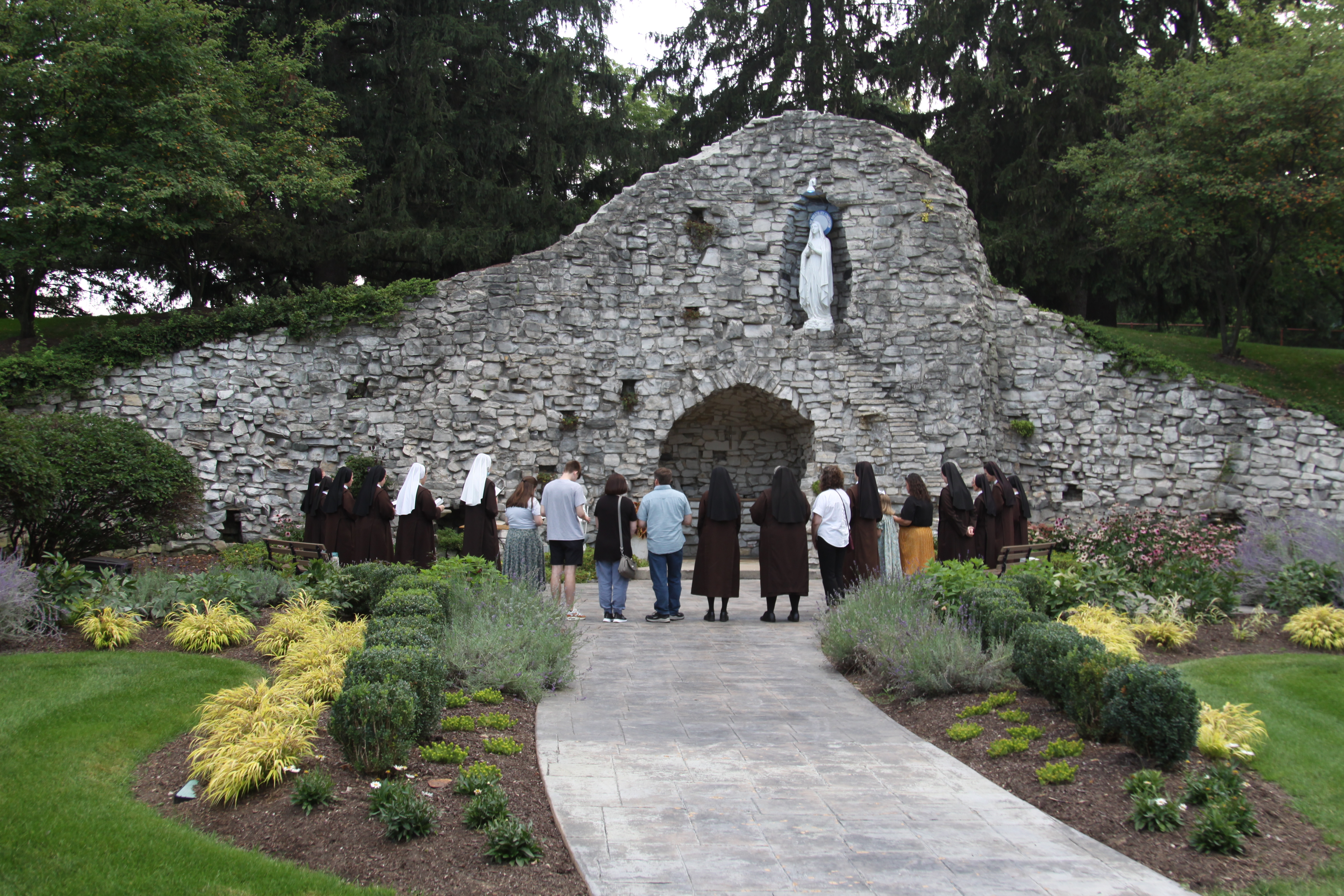
What is a postulant? How long will my daughter be a postulant?
A postulant is what we call a young woman who has newly entered the community. This young woman has not yet received the name “Sister” or the religious habit. The length of postulancy is two years. The purpose of the postulancy is to lead the young woman to an understanding of her religious vocation and to prepare her for the novitiate.
During this time the postulant will adjust to rising early to begin her daily meditation in chapel at 5:25 am. She will join in all community prayers and will begin to adjust to getting up during the night to pray before the Blessed Sacrament. During the day she will attend classes on Scripture, theology and religious life, as well as helping with domestic chores. Certain times during the day are designated for quiet reflection. Also special days of retreat are offered throughout the year. These days of spiritual refreshment are spent in prayer and recollection.

What is a novice? How long is the novitiate?
After the postulancy is completed, your daughter will be received into the novitiate, which lasts two years. She will be called a novice, which means she is a new Sister. On the day of reception, she is given the habit and a white veil and also receives a new name in religion. It is at this point that she is called “Sister.”
For the first year, she is a canonical novice. The laws of the Church are called canons. It is the law of the Church that a novice must have one uninterrupted year in the novitiate. The canonical year is to be devoted primarily to the religious and spiritual formation of the novice.
The second year of the novitiate is divided into two parts. The second year novice will spend time away from the novitiate house in one of the convents of our province in order to be introduced to the apostolic works of the community. This will give her the opportunity to begin to learn through experience how to combine her spiritual and apostolic life. Outside this time she remains in the novitiate dedicating her time to prayer, work, and study.
The novices are under the guidance of the Novice Directress. The directress will introduce the young Sister to an understanding of the nature and meaning of religious life, and guide the Sister to deepen and nourish her spiritual growth. The directress will also direct and support the novice toward a loving and free commitment to live the evangelical counsels. After the completion of the novitiate, your daughter will profess the vows of poverty, chastity, and obedience.
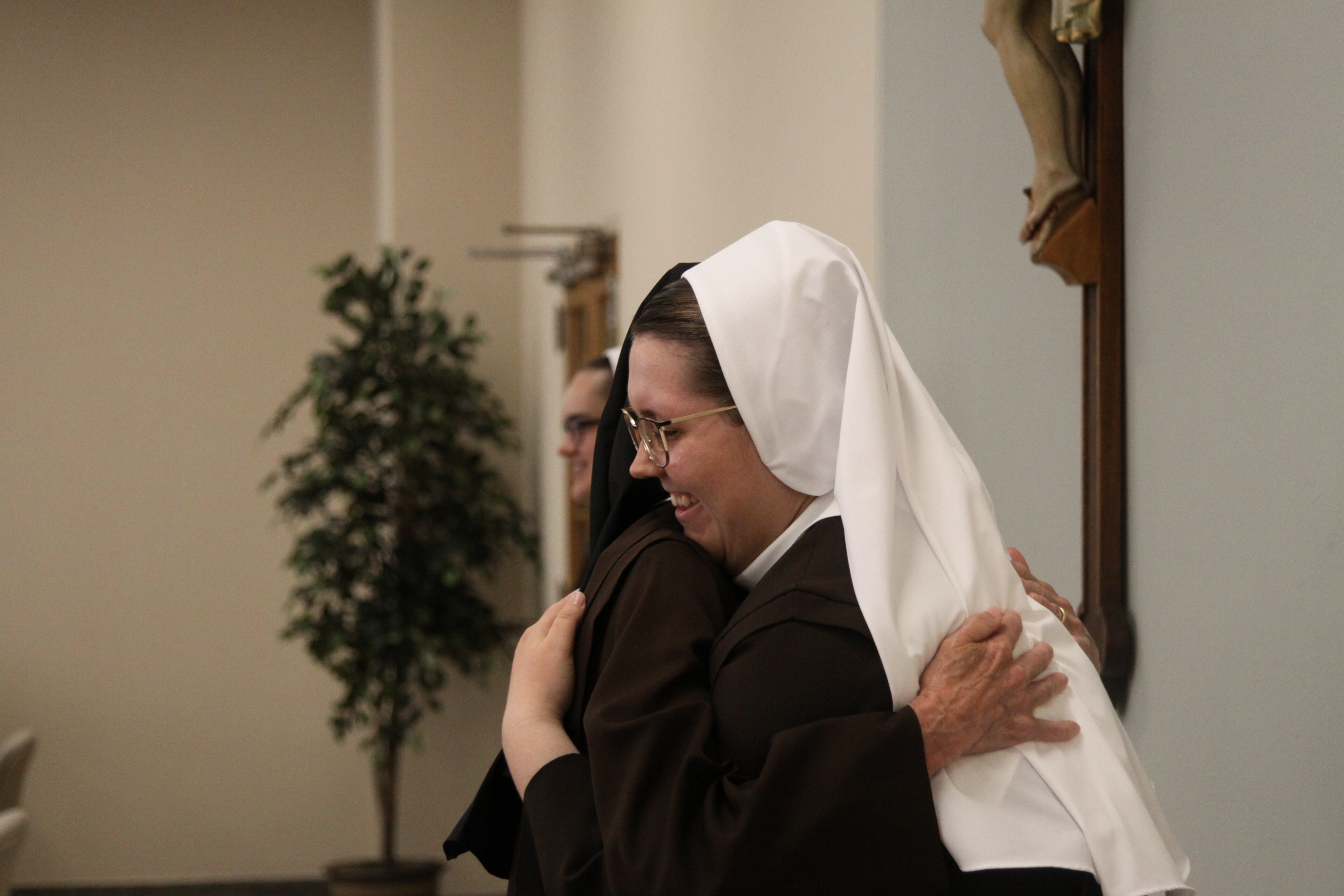
How can I help my daughter to be happy and have peace of heart during this time?
When we leave our family to enter God’s service, we promise God that He and His Kingdom will be our first concern, just as a married woman has her husband and her children as her first concern. Of course the gift of your loving presence in her life is always a great source of joy for her heart. In order to help with the transition, we encourage parents to affirm their daughter’s decision through positive words of reinforcement in letters and scheduled visits.
Assurances of prayer and loving support during this time can help your daughter overcome the difficulties that may arise as she embraces this new way of life. The devoted prayers of Christian parents create a grace-filled foundation from which a woman in religious life can find strength for her vocation.
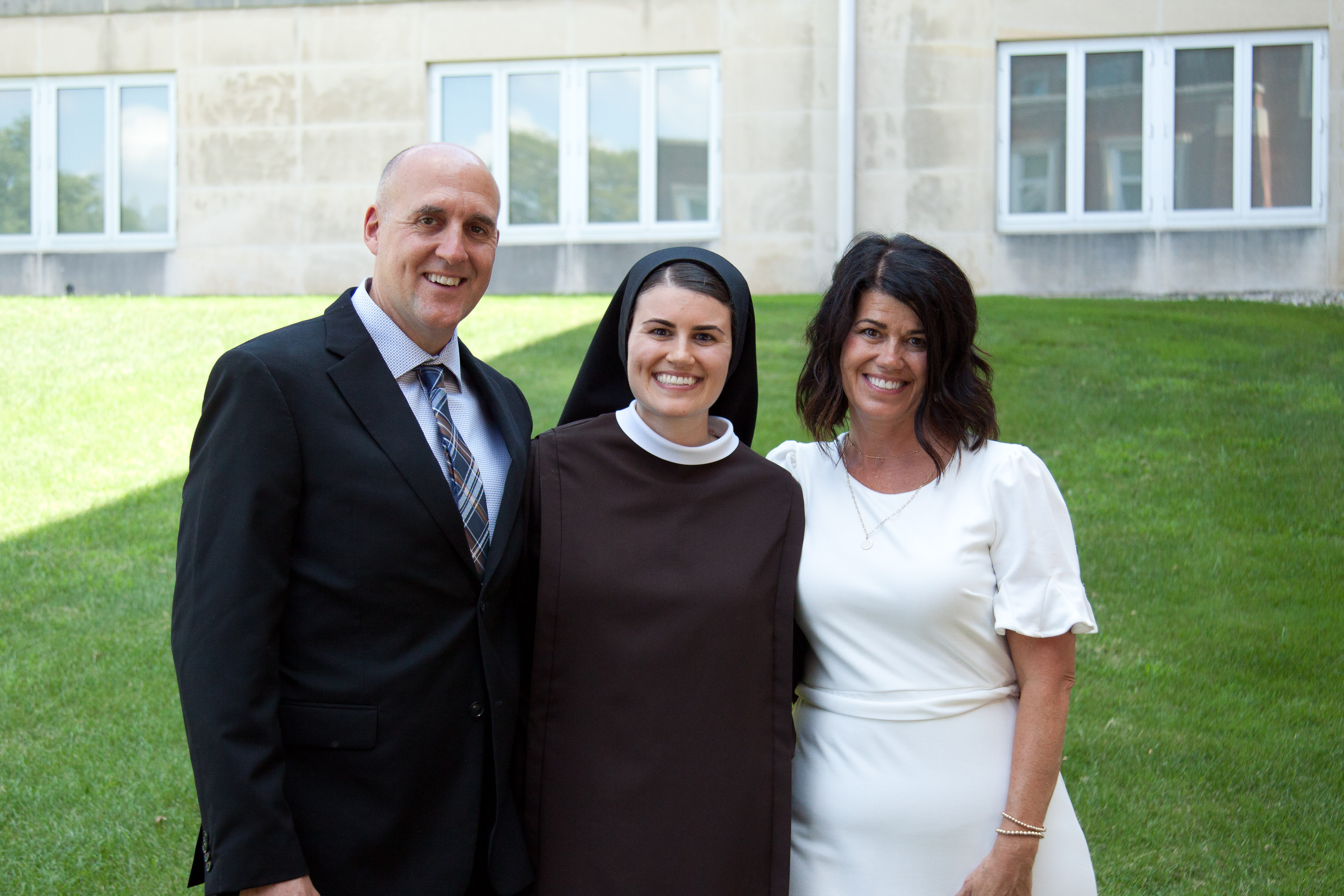
How can I correspond with my daughter during this time?
We encourage families to send letters. Email will not be available in the postulancy and novitiate. During Advent and Lent, which are penitential seasons in the Church, we usually do not write or visit our friends and families. The purpose is to focus more intensely on the great mystery of the season and enter deeply into the rich silence and recollection which unites us closer to Jesus. Postulants and novices ordinarily do not make or receive outside telephone calls.
